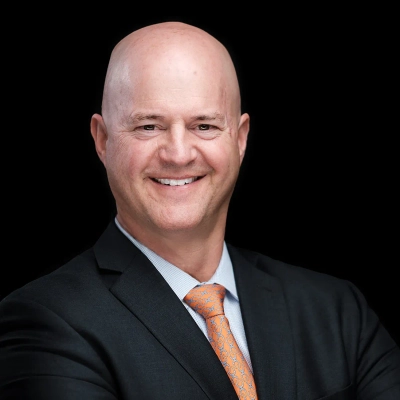Discover the crucial role personal financial advisors play in shaping your financial future. This article presents valuable insights from industry experts on how to effectively collaborate with advisors for optimal financial planning. Learn why selecting the right advisor and leveraging their expertise can significantly impact your long-term financial success.
- Advisors Ask Insightful Questions for Financial Success
- Hire Early to Blend Personal and Business Finances
- Treat Advisors as Strategic Partners in Finance
- Seek Advisors with Relevant Industry Experience
- Challenge Your Advisor for Better Financial Decisions
- Choose Fee-Only Fiduciary Advisors for Objectivity
- Verify Fiduciary Duty When Selecting an Advisor
- Look for Credentials and Communication Skills
- Fee-Only Advisors Prioritize Client Interests Best
Advisors Ask Insightful Questions for Financial Success
There are many factors to consider when choosing or evaluating the effectiveness of a financial advisor. While competency and credentials matter, one factor stands out among many qualitative measures: the advisor’s ability to ask open-ended and thought-provoking questions.
Among the many roles a financial advisor plays, behavioral coaching is one of the most critical. Helping a client reach their long-term financial goals requires more than just a portfolio of stocks and bonds – it requires discipline, emotional resilience, and a deep understanding of what matters most to the client. Effective financial advisors help clients “stay the course,” particularly during periods of market volatility, uncertainty, or fear. Keeping clients invested through both market highs and bear market lows, while focusing on time in the market rather than trying to time the market (selling low and buying high) is what builds long-term wealth.
An advisor who asks insightful and probing questions helps uncover a client’s most meaningful goals. These questions help the client clarify their financial purpose, align their values with their plan, and foster greater engagement in the financial planning process. That clarity becomes the foundation for an investment strategy, tailored to the client’s exact needs.
Ultimately, the effectiveness of a financial advisor can often be measured not just by investment returns, but by how well the advisor has helped the client stay invested, make thoughtful decisions, and feel confident in their financial future.
 Dan Hummert
Dan Hummert
President & Senior Wealth Advisor, Hummert Financial
Hire Early to Blend Personal and Business Finances
I’ve seen many founders delay hiring a personal financial advisor, thinking it’s only for when they’re “wealthy enough.” Truth is, the earlier you bring one on, the smarter your decisions become—especially when your personal and business finances start blending, which they always do. I brought on an advisor when spectup was expanding beyond pitch decks, and it helped me avoid some common traps, like overcommitting capital to things that looked exciting but weren’t aligned with my long-term goals. The right advisor helps you plan, not just react.
One tip I always share: ask them how they get paid. If it’s purely commission-based, their advice might be sales-driven rather than genuinely in your best interest. Fee-only advisors tend to be more transparent and aligned with your financial health. A good one will listen more than they speak in the first meeting. That’s always been a green flag for me.
I’ve seen many founders delay hiring a personal financial advisor, thinking it’s only for when they’re “wealthy enough.” Truth is, the earlier you bring one on, the smarter your decisions become—especially when your personal and business finances start blending, which they always do. I brought on an advisor when spectup was expanding beyond pitch decks, and it helped me avoid some common traps, like overcommitting capital to things that looked exciting but weren’t aligned with my long-term goals. The right advisor helps you plan, not just react.
One tip I always share: ask them how they get paid. If it’s purely commission-based, their advice might be sales-driven rather than genuinely in your best interest. Fee-only advisors tend to be more transparent and aligned with your financial health. A good one will listen more than they speak in the first meeting. That’s always been a green flag for me.
 Niclas Schlopsna
Niclas Schlopsna
Managing Consultant and CEO, spectup
Treat Advisors as Strategic Partners in Finance
I work with a financial advisor, but not in the traditional “set it and forget it” sense. I treat them more like a strategist I can spar with—someone who can stress-test my assumptions and flag blind spots I didn’t know I had. They don’t just manage money; they manage my psychology around money.
Here’s my #1 tip for choosing the right advisor: ask them what they’d do if they had half your net worth.
Most people ask what they’d do with their money. That’s the wrong approach. You want to see if they know how to shift strategies based on constraints and personal context. If their answer is just, “Well, I’d invest in XYZ fund” without considering things like liquidity stress, upside optionality, or behavioral tendencies under pressure, that’s a red flag.
The best advisors don’t just push spreadsheets. They have emotional range. They understand your tolerance for risk on a Tuesday when everything’s fine—and how that same tolerance evaporates during a market panic. The good ones will protect you not just from bad markets, but from your future, less calm self.
That’s the standard I look for. If they can’t talk about money in terms of both math and mood, they’re not the right fit.
 Derek Pankaew
Derek Pankaew
CEO & Founder, Listening.com
Seek Advisors with Relevant Industry Experience
I had one conversation with a financial advisor that saved me $24,000 by preventing a wrong decision in scaling my driver fleet of vehicles — and it changed how I do business.
As the owner of Mexico-City-Private-Driver.com, I run a high-end transport business in a city with variable costs and currency fluctuations. A few years ago, I was ready to finance three new luxury vehicles. On paper, it looked doable. But before moving forward and signing the loan, I had one of my advisors analyze my projections. She published all my three-year figures in less than 30 minutes and then found an unknown potential problem — I had not accounted for downtime due to local regulations or delays in obtaining temporary permits. It was a variable I had never tracked, but in her work with clients in a similar space, she had encountered it often.
Her advice helped me avoid locking up cash during a slow quarter and assisted me in changing my financing strategy to be more nimble. That experience opened my eyes to the fact that a great advisor is not just someone who can put together a spreadsheet; an advisor can provide context around your decisions that are made in the real world.
Here is a tip for selecting an advisor: ask them how they have helped a client in your sector mitigate risk or take advantage of an opportunity. Don’t just look for credentials – look for relevant battle stories. That one question, for me, is a huge discriminator between generalist advice and people who actually move the needle.
I still run a lean, profitable, and scalable business – and credit part of it to working with advisors who understand more than just numbers.
 Martin Weidemann
Martin Weidemann
Owner, Mexico-City-Private-Driver.com
Challenge Your Advisor for Better Financial Decisions
Financial life can become really hectic for someone who’s running a business and is also into trading and investing. I think financial advisors are like having a second pair of eyes that oversee my whole financial status and make sure that I won’t miss any blind spots in my financial decisions. Aside from this, they also provide second opinions on my daily financial decisions, whether they are good or not.
As a business owner and a serial investor, I’ve made a lot of bad financial decisions in the past. One example was a few years ago when I became greedy and too aggressive with a real estate deal without looking at the long-term risks. The good thing was that my financial advisor saw these risks, advised me to think about my long-term goals, and challenged my reasoning. Having those conversations saved me from overspending beyond my original budget, reminded me to weigh the short-term and long-term goals, and focus on what should be the bigger priority. This situation helped me realize that a good advisor will challenge you and won’t just keep agreeing with you.
An important tip I can give when choosing an effective advisor is to never hire someone based only on their credentials. Instead, test them on how well they listen to your questions. I always believe that a good advisor should listen more than they talk. Those who listen more are the best advisors that will help you in guiding real priorities and making the right financial decisions. Over time, you’ll realize that it’s best to have someone who understands your values and ideas and will help you focus on what to do best.
 Mimi Nguyen
Mimi Nguyen
Founder, Cafely
Choose Fee-Only Fiduciary Advisors for Objectivity
Personal financial advisors aren’t just number-crunchers—they act as long-term partners in your financial journey. A great advisor helps guide you through all of life’s twists and turns—whether you’re navigating a job change, planning for college, preparing for retirement, or dealing with an unexpected inheritance. They act as an impartial “back-seat driver,” helping you see beyond spreadsheets to the real-world complexities of your life.
When choosing a financial advisor, always look for a fee-only, fiduciary advisor. Independent and fiduciary advisors are legally and ethically bound to put your interests first. They don’t earn commissions from selling financial products, so their guidance remains objective and tailored squarely to your needs.
 Greg Welborn
Greg Welborn
Principal, First Financial Consulting
Verify Fiduciary Duty When Selecting an Advisor
Personal financial advisors act as crucial guides in your financial journey, helping you chart a course to your monetary goals. They assess your current financial standing, identify your aspirations like retirement or buying a home, and then craft personalized strategies encompassing investments, budgeting, taxes, and even insurance. They’re there to help you make informed decisions, navigate market fluctuations, and stay on track with your long-term plans.
For choosing an advisor, here’s what you need to know: always verify their fiduciary duty. This means they are legally obligated to act in your absolute best interest, putting your needs before their own. Ask directly if they are a fiduciary; it’s a critical factor in ensuring unbiased advice.
 Cindy Cavoto
Cindy Cavoto
Founder, CindyCavoto.com
Look for Credentials and Communication Skills
Personal financial advisors play a crucial role in helping individuals achieve their financial goals. They provide expert guidance on budgeting, investments, retirement planning, and more, tailoring strategies to each client’s unique needs. When choosing an advisor, look for credentials like CFP or CFA and a proven track record of success. It’s also important to evaluate their communication style and transparency about fees. A great advisor is not just knowledgeable but also a trusted partner in your financial journey.
 Linda Chavez
Linda Chavez
Founder & CEO, Seniors Life Insurance Finder
Fee-Only Advisors Prioritize Client Interests Best
An individual personal financial advisor, or a whole team in the case of wealth management, will tailor a strategy, create it, and maintain it in line with your goals, lifestyle, and risk preferences. This also includes investments, taxes, insurance, and retirement planning. Each makes sense for these financial areas.
Verify the advisor’s credentials and how they charge for their services. A CFP® designation proves they have met rigorous standards. The best option is to hire fee-only advisors—they do not earn commissions; this is in the best interests of their clientele and not based on product sales.
 Nathan Barz
Nathan Barz
Financial Advisor, Management Expert, SEO Founder and CEO, DocVA













